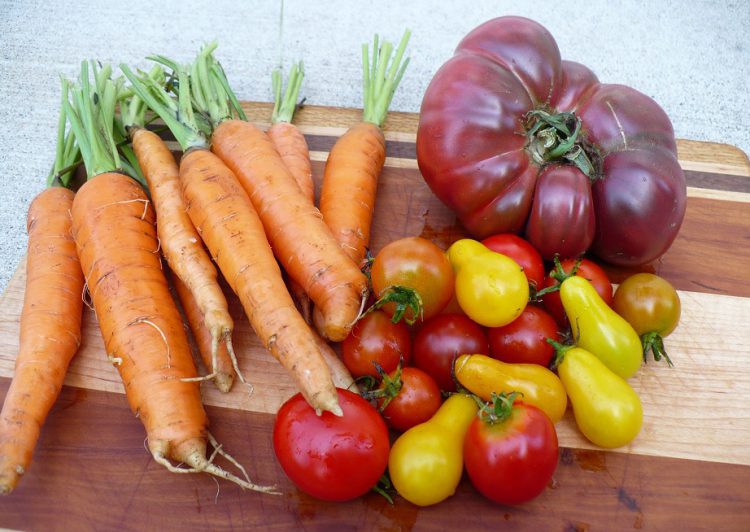Why washing your produce may not be good enough
August 14, 2024 by DarcieMost of us wash our produce before prepping it for eating or cooking. We’ve been told that not only does it protect us from foodborne illness, but that it also helps remove residual pesticide residue. While the former may be true, a new study reveals that the latter is almost certainly false. We might want to dig out the good old vegetable peeler instead.

Earlier this year Consumer Reports reported that it found pesticide residue on many fruits and vegetables it tested, sometimes in alarming amounts of pesticides that have been banned for over a decade. While conventional wisdom posits that washing the produce will remove pesticides, the study – which used a novel technique to test for pesticide residue – showed that the chemicals can penetrate below the surface of the produce in items such as apples.
The news isn’t all bad, however. The Consumer Reports article noted that about two-thirds of produce tested in the US did not have worrying amounts of pesticides or harmful chemicals. Organic produce had the lowest amounts, and certain foods such as peas, cabbage, and onions were also in the safest category. Only a handful of foods, including potatoes, had harmful levels in both domestic and imported varieties. Additionally, the authors of the study on pesticide residue detection concluded that “the peeling operation can effectively avoid the hazards of pesticides in the
fruit’s epidermis and near-epidermal pulp, thereby reducing the
probability of ingesting pesticides.” So peel with abandon.
Categories
- All Posts (6940)
- Antipasto (2135)
- Author Articles (247)
- Book News (935)
- Cookbook Giveaways (983)
- Cookbook Lovers (257)
- Cooking Tips (109)
- Culinary News (299)
- Food Biz People (552)
- Food Online (791)
- Holidays & Celebrations (272)
- New Cookbooks (149)
- Recipes (1500)
- Shelf Life With Susie (231)
- What's New on EYB (133)
Archives
Latest Comments
- Atroyer7 on Danube Cookbook Review and Giveaway
- demomcook on What foods do you look forward to the most for each season?
- demomcook on Danube Cookbook Review and Giveaway
- Darcie on How cookbooks can help build resilience
- mholson3 on Danube Cookbook Review and Giveaway
- Rinshin on How cookbooks can help build resilience
- sarahawker on Danube Cookbook Review and Giveaway
- Sand9 on Danube Cookbook Review and Giveaway
- hankintoby29 on Heritage Cookies of the Mediterranean World – Cookbook Giveaway
- WBB613 on Feasts of Good Fortune Cookbook Giveaway